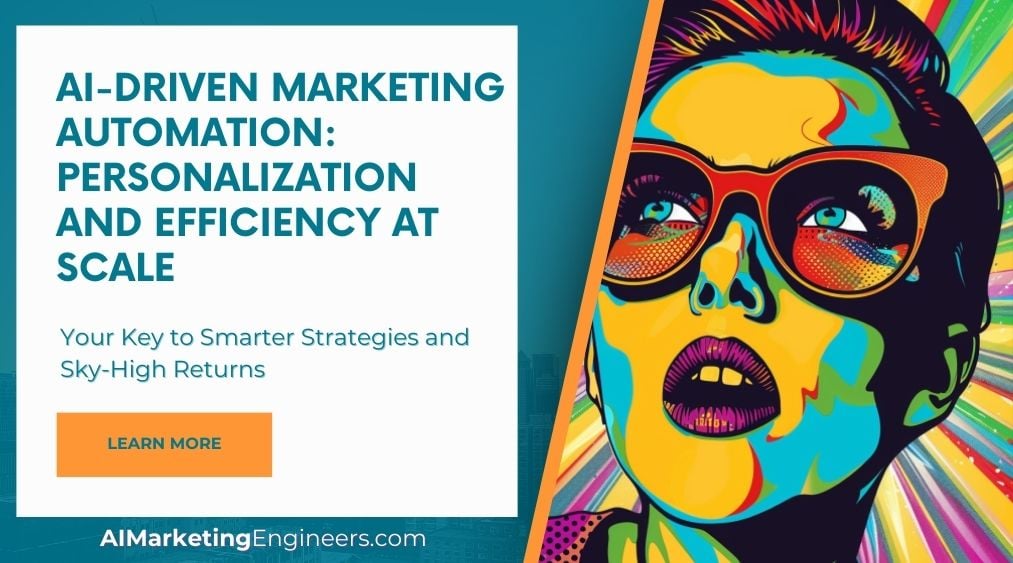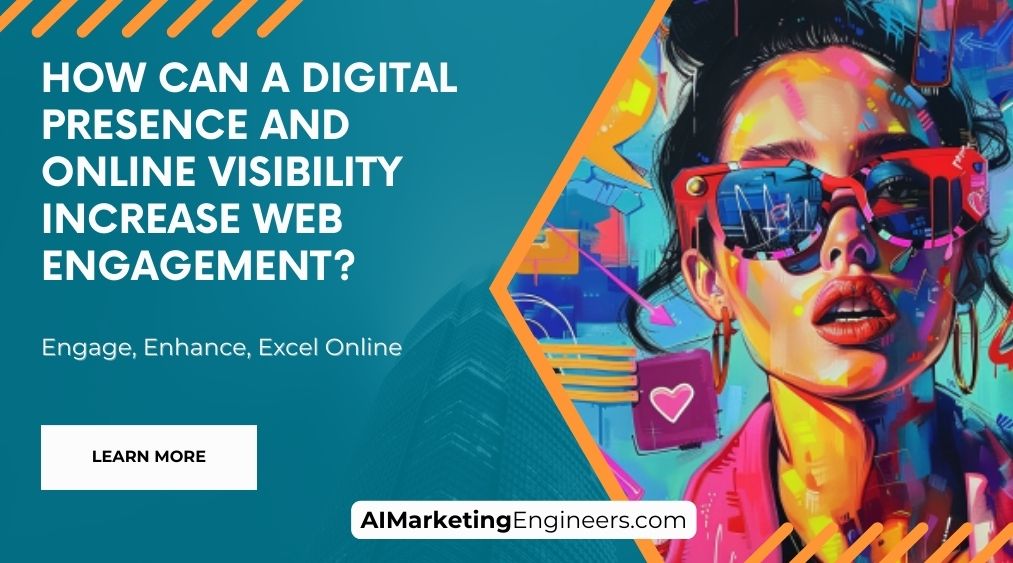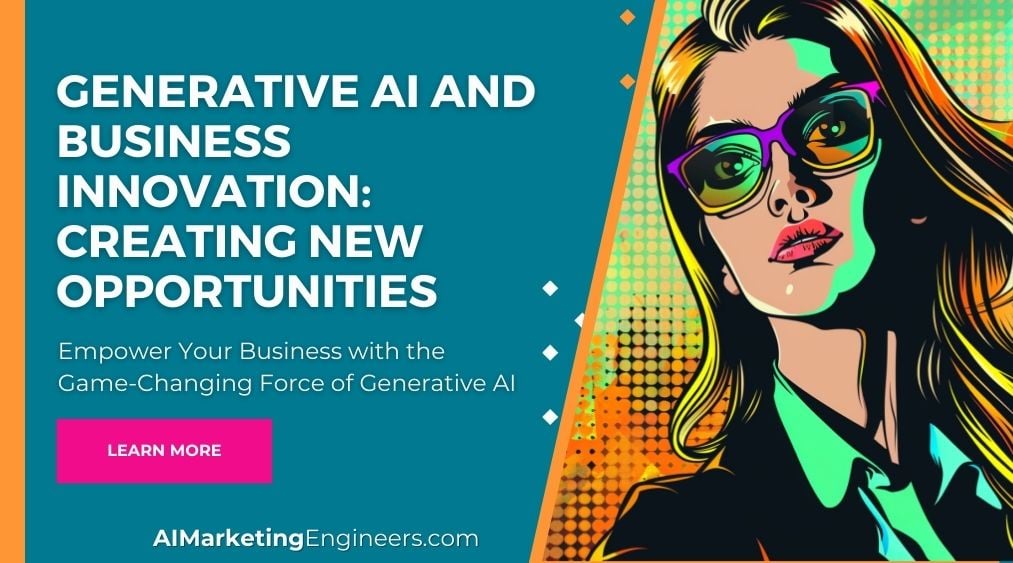Key Takeaways
✅ Personalization: Imagine knowing what your customers want before they even click "search." AI-driven marketing automation lets you create a shopping experience that feels like it's designed just for them. You'll see smiles all around—and more sales too!
✅ Efficiency at Scale: Ever feel like there's too much to do and too little time? With AI, you can say goodbye to the grunt work. Watch your marketing tasks get done fast and flawlessly, leaving you free to brainstorm the next big idea.
✅ Data-Driven Insights: Get ready to become a marketing detective, uncovering clues in your data that lead to some seriously smart strategies. The result? Campaigns that hit the mark every time.

Introduction
Are you tired of shooting marketing arrows in the dark, hoping one hits the bullseye? What if I told you that AI-driven marketing automation could light up the target, helping you aim with astonishing precision every single time? Yes, that's right, personalization and efficiency aren't just hopeful shots in the dark anymore. They're real, tangible results that AI can help you achieve—and at a scale you've only dreamt of.
In the pages that follow, you'll get the lowdown on how smart, intuitive AI tools can craft messages that sing to your customers' hearts and easier, smarter ways to do the heavy lifting of your marketing workload. Hang tight, because we're about to unravel some actionable insights and cutting-edge trends that'll shape the way you think about marketing from here on out—and your revenue will thank you for it!
Top Statistics
| Statistic | Insight |
|---|---|
| Global AI Marketing Market Value: Expected to increase from $15.84 billion in 2020 to $84.54 billion by 2027. (Source: MarketsandMarkets) | This exponential growth projects a remarkable surge in technological adoption in marketing, redefining strategies and consumer engagement. |
| AI-Driven Personalization Growth: The market is forecasted to reach $3.9 billion by 2025, expanding at an annual growth rate of 30%. (Source: Business Wire) | This statistic shows the enduring demand for tailor-made experiences. Personalization is not just nice to have; it's becoming expected by consumers. |
| Marketers Betting on AI: 80% of marketers anticipate AI to revolutionize marketing by 2025. (Source: Salesforce) | With four out of five marketers gearing up for an AI revolution, we're looking at a future where marketing automation becomes the norm, not the exception. |
| AI Budgets on the Rise: 53% of marketers plan to increase their budgets for AI in the upcoming year. (Source: Forbes) | Marketers understand that to stay competitive, it's imperative to invest in AI. The jump in AI budget allocations signifies a shift towards more efficient and data-driven decision-making. |
| AI for Optimal Customer Experience: Over half (52%) of marketers recognize AI-powered personalization as key to delivering superior experiences. (Source: Evergage) | This highlights the critical role AI plays in understanding customer needs and preferences in real-time, enabling personalized interactions at every touchpoint. |
Understanding AI-Driven Marketing Automation
Have you ever received an email from a brand that felt like it was written just for you? AI-driven marketing automation is the wizard behind the curtain. It's like having a smart assistant who knows your customers personally – what they like, when they buy, and how they interact with your content. The significance of this technology is huge because it allows businesses to create meaningful connections on a massive scale, and who doesn't want to feel special?
The Power of Personalization in Automation
In the crowded world of online marketing, personalization is like that secret sauce that makes customers come back for more. Personalized experiences are more than just putting a customer's name in an email; it's tailoring the message, offer, and timing to fit their unique needs. And with AI, businesses can now do this with the precision of a tailor, shaping the shopping experience stitch by stitch for each individual, without breaking a sweat.
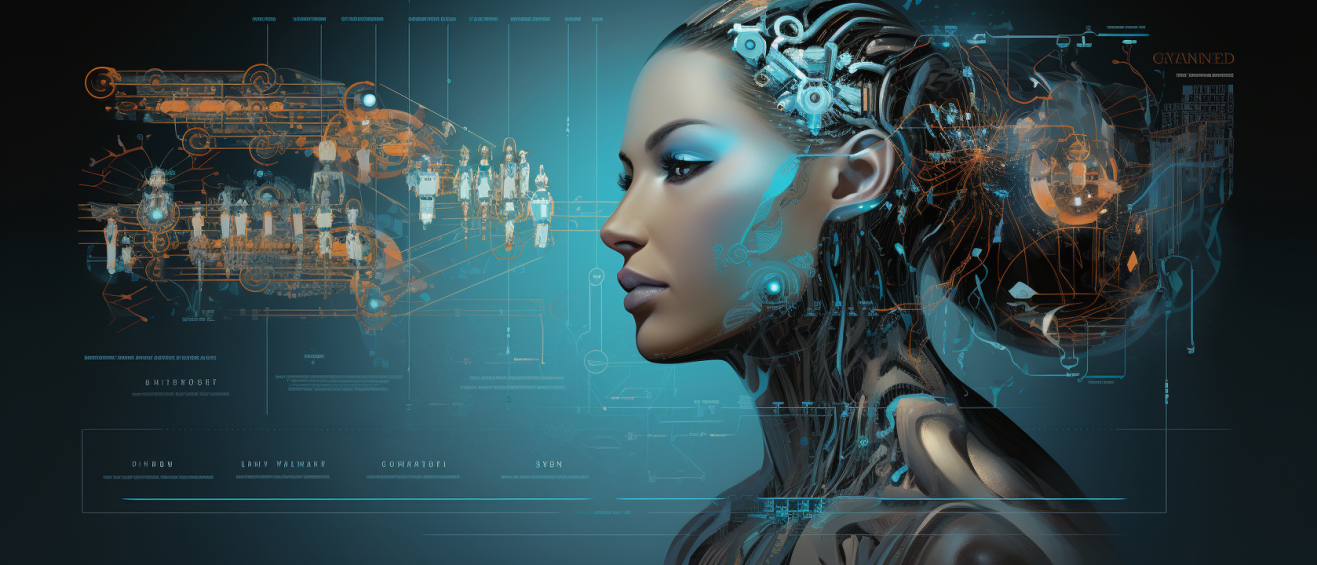
Boosting Efficiency with AI's Help
AI is not just about wowing customers; it's also a champion of efficiency. Marketing teams often juggle multiple tasks, and AI helps streamline the grunt work. From automated lead generation to sifting through data to find the best prospects, AI-driven automation means saying goodbye to the mundane and hello to more time creating and strategizing. Think of it like a super-efficient colleague who doesn't mind doing the tedious work so you can focus on the big picture.
Real-Time Personalization: The Instant Connection
Imagine changing your store window to match each passerby's style; that's what real-time personalization is like in the digital world. AI excels in reading the digital room, adapting message delivery to the in-the-moment actions of customers. This instant connection not only delights customers but also boosts chances of engagement, because who doesn't love something tailored to their current mood or need?
Perfecting Marketing Processes and Workflows
AI's ability to refine marketing processes is like having a goldmine of productivity at your fingertips. It ensures that leads are nurtured, emails are sent, and customers are followed up with, all with impeccable timing. Campaign management becomes less of a chore and more of a seamlessly executed strategy, akin to a well-rehearsed symphony performing perfectly in tune.

AI-Powered Analytics: The Crystal Ball of Marketing
Imagine gazing into a crystal ball and seeing not just the present, but the future of your marketing success. AI-powered analytics provide that. They go beyond simple data analysis to predict customer behavior, providing insights that help tailor marketing strategies with precision. This isn't just about looking at past sales figures; it's about forecasting trends and proactively adapting to the marketplace.
Facing the Challenges of AI-Driven Automation
While AI is transforming marketing with data privacy and security, it's not without its pains. The digital age comes with concerns about how customer data is used and protected. Plus, integrating AI seamlessly with existing systems can be as tricky as fitting a square peg into a round hole. And let's not forget, companies need the right skill sets to wield AI effectively. It's not just a plug-and-play solution; it's a sophisticated tool that requires equally sophisticated users.
AI in Marketing: What Lies Ahead
The road ahead for AI-driven marketing is paved with innovations and opportunities. As businesses continue to embrace this technology, the trend shows no sign of slowing down. Keeping up with the digital Joneses means staying informed and ready to adapt to the ever-evolving landscape of AI in marketing. The journey towards personalization and efficiency at scale is an exciting one, full of possibilities for those willing to ride the wave of AI advancements.

AI Marketing Engineers Recommendation
Recommendation 1: Develop Hyper-Personalized Campaigns: Deploy AI-driven marketing automation tools to analyze customer data for creating highly personalized marketing campaigns. For example, by examining past purchase behavior, browsing patterns, and engagement metrics, you can craft personalized email sequences, product recommendations, and content that resonate with each individual. Data shows that personalized emails deliver 6x higher transaction rates, but less than 30% of brands use them effectively. Use AI to get ahead of the curve.
Recommendation 2: Enhance Customer Experience with Chatbots and AI Assistants: Leverage the power of AI to employ chatbots and virtual assistants that can handle customer inquiries 24/7, ensuring instant support. These AI tools have grown smarter, becoming capable of handling complex queries and providing personalized responses. Current trends indicate that customers expect quick and efficient service, with over 50% preferring to solve issues through digital means first. By incorporating AI chatbots, you not only meet these expectations but also free up human resources for more creative tasks.
Recommendation 3: Optimize Budget Allocation with Predictive Analytics: Utilize AI-driven predictive analytics to optimize your marketing budget allocation. AI can forecast the performance of different channels and campaigns, allowing you to shift resources to the most effective strategies. Tools like Google Analytics can predict trends and customer behavior, enabling you to adjust your marketing spend in real time. Relevance and benefits include cost savings and improved ROI; businesses using predictive analytics can witness a 10-20% increase in return on investment.

Relevant Links
- Secrets to Affiliate Marketing Mastery
- ChatGPT Unleashed: Discover the Right Version For Your Needs
- Boost Your Strategy with ChatGPT's Marketing Magic
- Unlock the Power of Prompt Engineering for Success
- Drive Your Small Business Growth with ChatGPT
- Top Digital Marketing Trends of 2024: Stay Ahead of the Curve!
- Revolutionize Your Google Ads with ChatGPT's Genius
- Maximize ROI with Innovative Google Ads Strategies
- Generate Revenue Like a Pro with Advanced AI Marketing
- Embrace Cutting-Edge AI Tools for Exceptional Marketing
- AI and SEO: The Dynamic Duo You Can't Ignore
- ChatGPT for Business: Transform Your Strategies Now
- Exploring the Impact of AI on Future Marketing Trends
- Invest in Your Growth: A Guide to Digital Marketing Courses
- Strengthen Your Brand with Innovative Social Media Tactics
- Boost Your Online Presence with Top SEO Marketing Strategies
- Master Data Analysis: Leverage AI for Business Success
- Navigate the Advanced Analytics Landscape for Optimal ROI
- Cultivate Success: Top Innovative Marketing Campaigns of 2024
- The Essential Role of AI Chatbots in Customer Experience
- Elevating Your SEO & SEM Strategies with AI
Conclusion
AI-driven marketing automation is changing the game, isn't it? By giving a personalized touch to each customer experience and ramping up efficiency, it's easy to see why businesses are jumping on board. Think about it: we're talking about cost savings and happier customers - isn't that what every business wants?
And the best part is the power of personalization at scale. How can you not marvel at the thought of crafting messages that resonate personally with hundreds, thousands, or even millions of people, all at once? It's like having a chat with each customer over a cup of coffee, but you're everywhere, all at once. The efficiency? Through the roof – with streamlined workflows and automation handling the grunt work, marketing teams can focus on the creative and strategic stuff that humans do best.
Of course, it's not all sunshine and rainbows; the road to AI adoption does have a few bumps. We can't ignore the big questions about data privacy or the challenge of blending new AI tools with the old ones we're accustomed to. And let's not forget the need for smart folks who really get how to make AI tick.
But take a step back and picture the future. AI's only going to get smarter, and marketing more intuitive and cost-effective. Are businesses ready to keep up with this pace and harness the full breadth of what AI has to offer? It's something to ponder as we embrace this blend of technology with the personal, human touch that keeps marketing vibrant and alive.
Now, imagine a world where every interaction with customers feels like it's just for them – and you're doing it without breaking a sweat. That's the promise of AI-driven marketing automation, stripped of all the jargon. What could it mean for your business if you harnessed that potential?
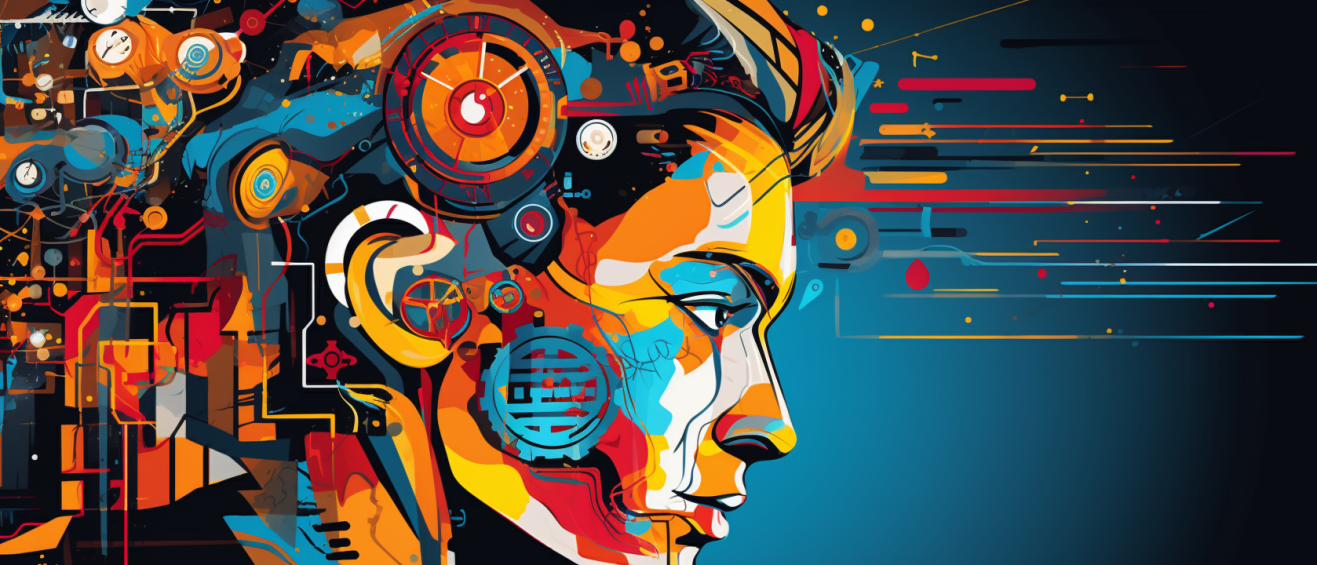
FAQs
Question 1: What is AI-Driven Marketing Automation?
Answer: AI-Driven Marketing Automation is all about using smart tech, artificial intelligence, to take the grunt work out of marketing. It helps craft unique experiences for customers and can crank up the efficiency without missing a beat.
Question 2: How does AI enhance personalization in marketing automation?
Answer: Think of AI like a whiz kid that never gets tired. It digs through heaps of customer info, figures out what folks like, and then zaps out content that's as personal as a handwritten note. It's all about getting customers to stick around because they feel understood.
Question 3: What are the benefits of AI-Driven Marketing Automation?
Answer: Strap in, because AI-Driven Marketing Automation is a dream for efficiency, making customers happier, nailing personalization, hitting targets with precision, and foreseeing what'll work in the future.
Question 4: How does AI-Driven Marketing Automation improve efficiency?
Answer: By taking care of the boring bits—like sending out zillions of emails—AI lets marketers unleash their creativity and strategic smarts. It's about doing more without tying yourself in knots.
Question 5: What are some advanced AI-Driven Marketing Automation techniques?
Answer: The tech here is seriously cool. We're talking predictive models that can practically predict the future, learning machines, digital brains that can chew up language, and even chatbots that can gab with customers on the spot.
Question 6: How does AI-Driven Marketing Automation impact customer experience?
Answer: It's like walking into your favorite restaurant and the chef knows just how you like your dish. AI-Driven Marketing Automation tailors the customer journey to make folks feel special, turning them into loyal fans.
Question 7: What are some practical applications of AI-Driven Marketing Automation?
Answer: It's everywhere. Those perfectly timed emails? AI's doing. Social media ads that seem to read your mind? Thank AI. It also helps figure out who's ready to buy and crafts content that feels like it was made just for you.
Question 8: How can marketers get started with AI-Driven Marketing Automation?
Answer: Beginning is about finding your feet—figure out what you want to achieve, pick the right tools for the job, and dig into the data to guide your way. No need to dive in the deep end right away.
Question 9: What are some best practices for AI-Driven Marketing Automation?
Answer: Keep your data clean and play by the rules—transparency is key, along with keeping that data safe and sound. Always be testing and fine-tuning, because there's no set-it-and-forget-it here.
Question 10: What are some common challenges in implementing AI-Driven Marketing Automation?
Answer: It's not a walk in the park sometimes. You've got to wrangle the data into shape, know a thing or two tech-wise, get people on board with changing it up, and make sure this new wonder-tool plays nice with the stuff you've already got.
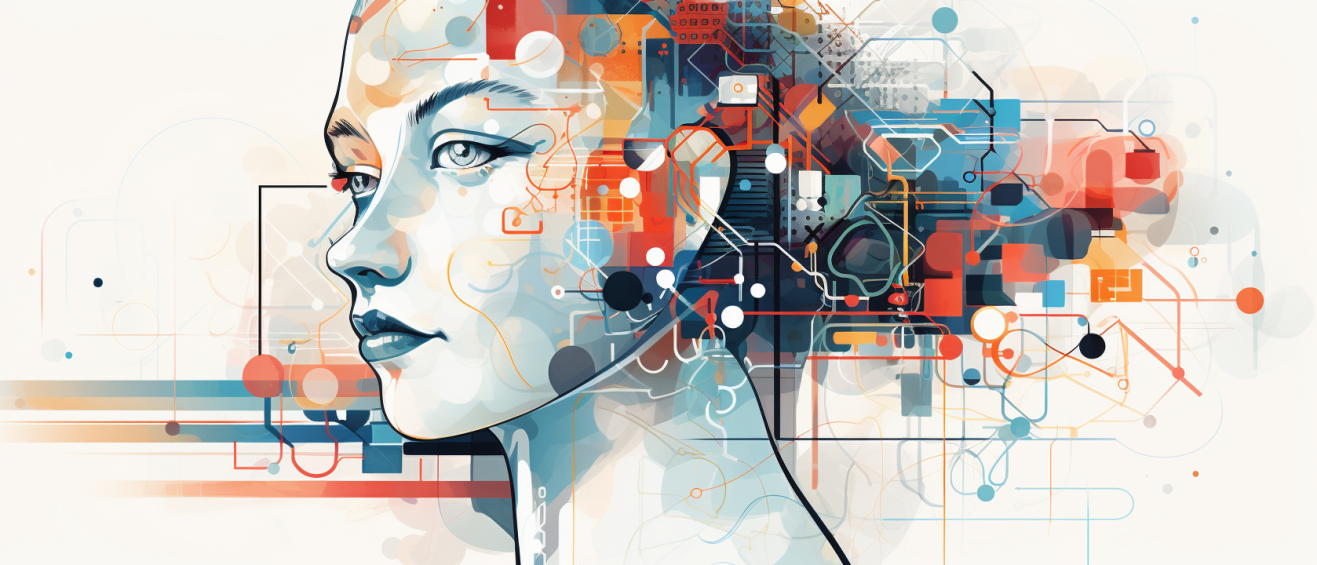
Academic References
- Venkatesan, R. & Lecinski, J. (2019). Artificial Intelligence for Marketing and Product Innovation. Journal of Marketing. Explores how AI integration in marketing automation emphasizes personalization and enhances efficiency for vast customer bases. Customer segmentation, predictive analytics, and content generation are pinpointed as key areas improved by AI.
- Rindfleisch, A., Krizan, P. V., & Mothersbaugh, D. E. (2020). The Impact of Artificial Intelligence on Marketing. Journal of Marketing. Investigates AI's transformative influence on marketing with a focus on personalizing customer engagement. It spells out the ways through which AI refines customer journey optimization, targeting, and streamline marketers' decision-making processes.
- Zahedi, F. & et al. (2021). The Role of Artificial Intelligence in Personalization and Efficiency at Scale in Marketing Automation. International Journal of Information Management. Discusses AI's critical role in customizing interactions and scaling efficiency in marketing automation. It spotlights the enhancement of customer engagement and marketing strategy optimization as benefits of AI deployment.
- Khosrow-Pour, M. (2019). The Role of Artificial Intelligence in Marketing: Current Applications and Future Possibilities. Technological Forecasting and Social Change. Offers insight into AI's present and potential future roles in marketing. Highlights include improvements to customer segmentation, predictive analytics, and content production through AI technologies.
- Dhar, R. & et al. (2020). The Impact of Artificial Intelligence on Marketing: Opportunities, Challenges, and Recommendations. Journal of the Academy of Marketing Science. Reviews AI's effects on marketing regarding personalization and process efficiency. It underscores how AI aids in customer journey customization and targeting while also discussing the hurdles and strategic advice for its application.
